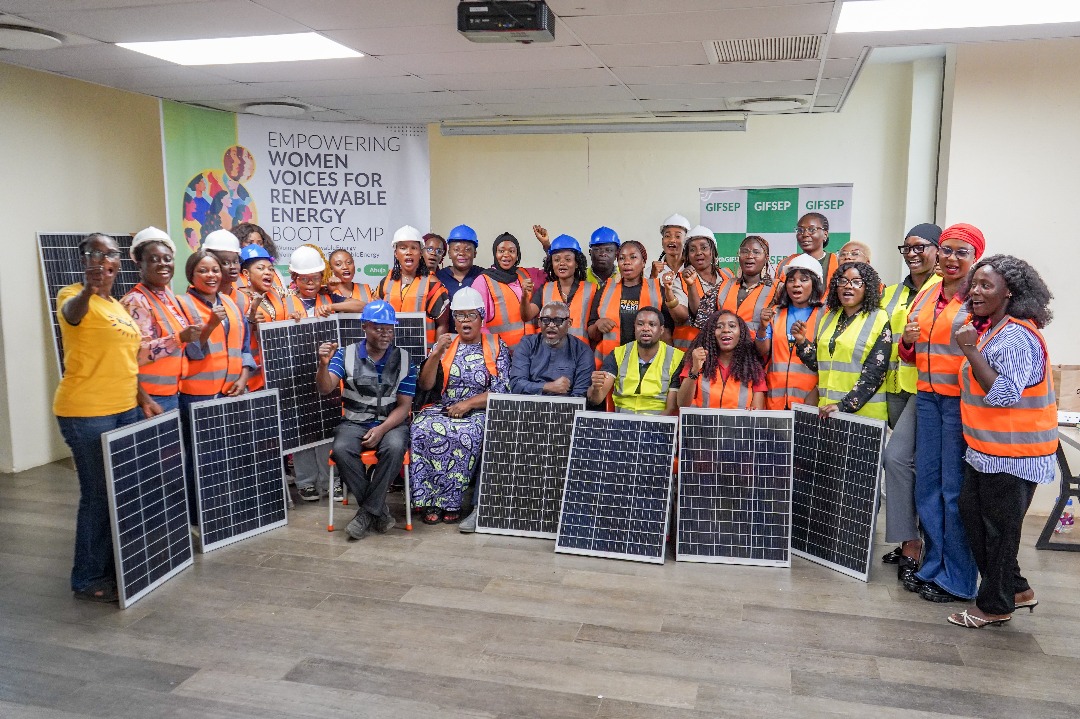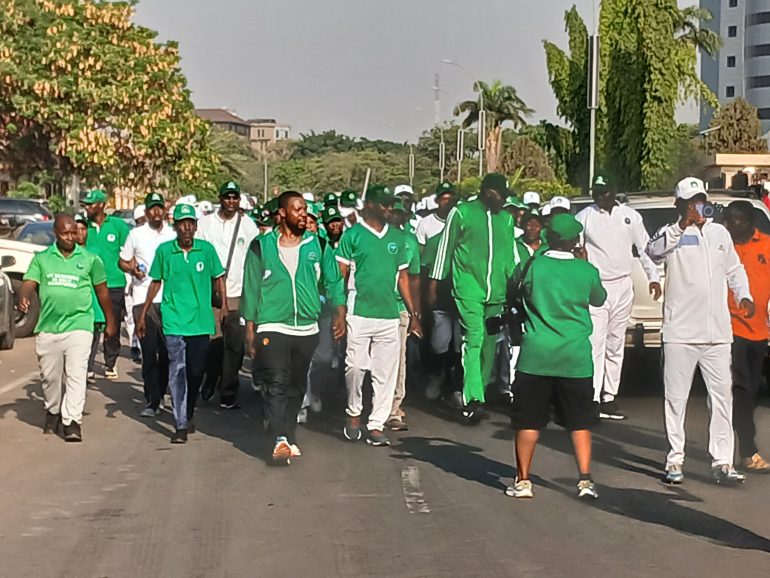Listeners:
Top listeners:
-
play_arrow
104.9FM Best rock music demo
-
play_arrow
Demo Radio Nr.1 For New Music And All The Hits!
-
play_arrow
Demo Radio Techno Top Music Radio
-
 play_arrow
play_arrow
Police Commissioner Launches Weapon and Riot Control Training for FCT Officers Democracy Radio
By Oluwakemi Kindness
Women under the Women Voices for Renewable Energy initiative have called for stronger national commitment to equitable energy access across Nigeria, describing energy as a human right, not a privilege.
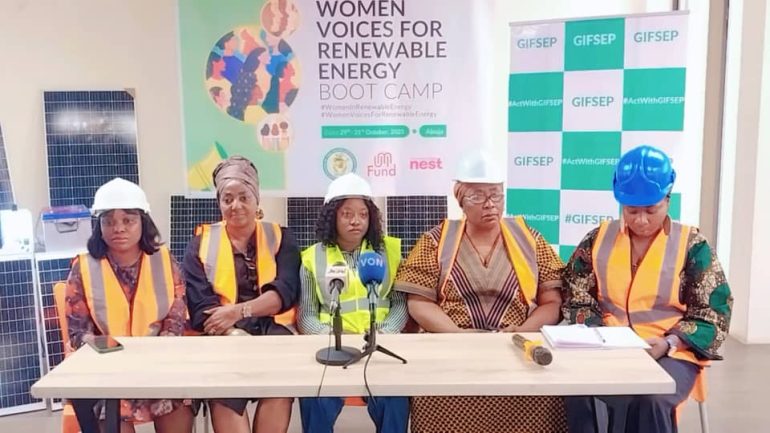
The call was made at the end of a three-day boot camp on renewable energy in Abuja, organized by the Global Initiative for Food Security and Ecosystem Preservation (GIFSEP) with support from the UMI Fund.
Participants discussed how renewable energy can drive inclusion, rural development, and women’s empowerment, especially in communities still without reliable electricity.
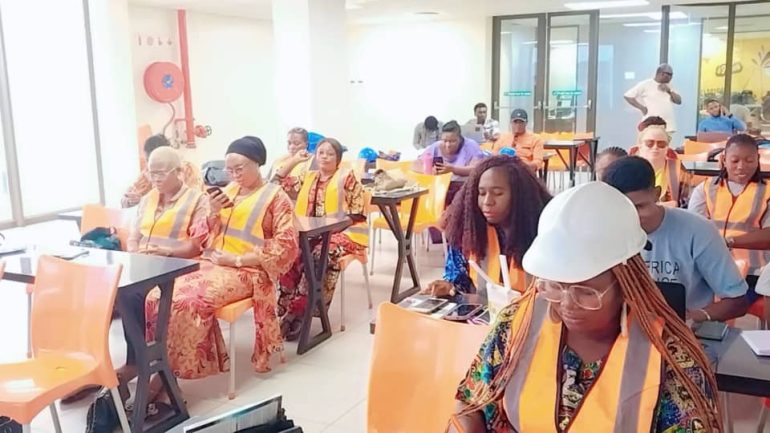
Project Lead, Dorcas Nicanor, said the initiative seeks to equip women with the technical and advocacy tools to participate actively in Nigeria’s clean energy transition.
“The boot camp was designed to build women’s capacity in renewable energy while addressing the gender gap in the sector,” she explained.
From across Nigeria’s regions, women shared their experiences of energy challenges.
Julie Oja-Okah, representing coal-producing communities in Benue and Kogi States, lamented how mining has devastated livelihoods.
“Renewable energy is no longer a privilege but a right that can transform lives in rural areas,” she said.
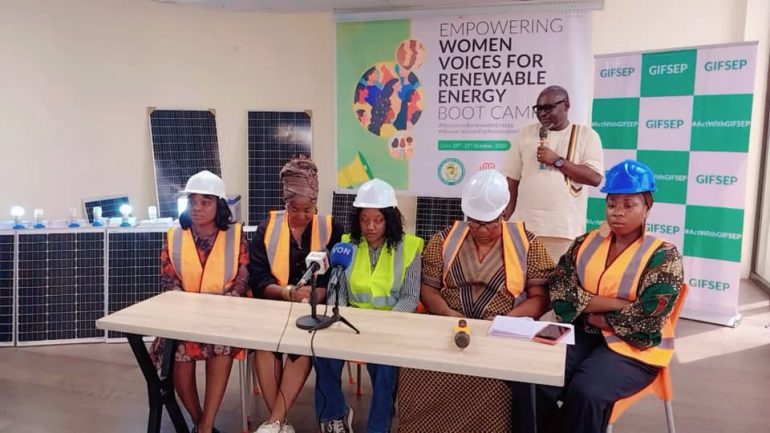
In the Niger Delta, Amanie Stella and Mbani Kalene of Ogoniland decried decades of oil pollution and energy poverty, urging multinational oil firms to clean up impacted lands and ensure energy justice for women.
From Nasarawa State, Rejoice Asoloko Manasi highlighted that despite abundant mineral resources, local communities face insecurity and deprivation.
“This training opened our eyes to the opportunities renewable energy offers for women’s empowerment and rural progress,” she noted.
Participants, however, raised concerns about the influx of fake solar products in Nigerian markets and the proposed ban on imported solar panels, warning that such policies could make clean energy unaffordable for low-income households.
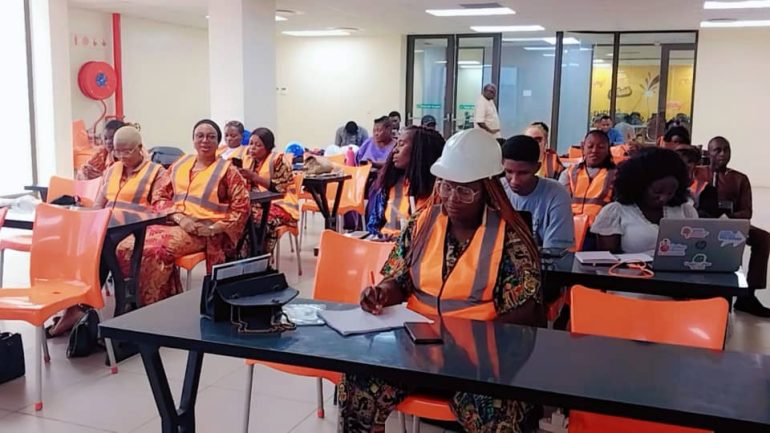
They urged the Standards Organisation of Nigeria (SON) to intensify efforts against substandard solar products and ensure only durable, efficient systems reach consumers.
The dialogue also spotlighted inclusion. Esther Isaac Chidera, a participant living with disability, spoke on the transformative impact of energy access:
“For the blind, light is independence. For the deaf, light is their ears. Renewable energy is not just power — it is inclusion.”
Participants further called for microcredit financing to help rural women afford small-scale solar systems, urging banks to extend renewable energy loans beyond urban centers.
GIFSEP’s Executive Director, Dr. Michael Terungwa, said the initiative is part of a broader national campaign to promote renewable energy adoption and climate action.
He encouraged women to pursue certified training in project management and entrepreneurship within the growing energy sector.
According to organizers, the Abuja dialogue aims to strengthen collaboration among women leaders, government agencies, and private stakeholders to ensure no woman or community is left behind in Nigeria’s clean energy transition.
Written by: Toyeebaht Aremu
Similar posts
Copyright Democracy Radio -2024

